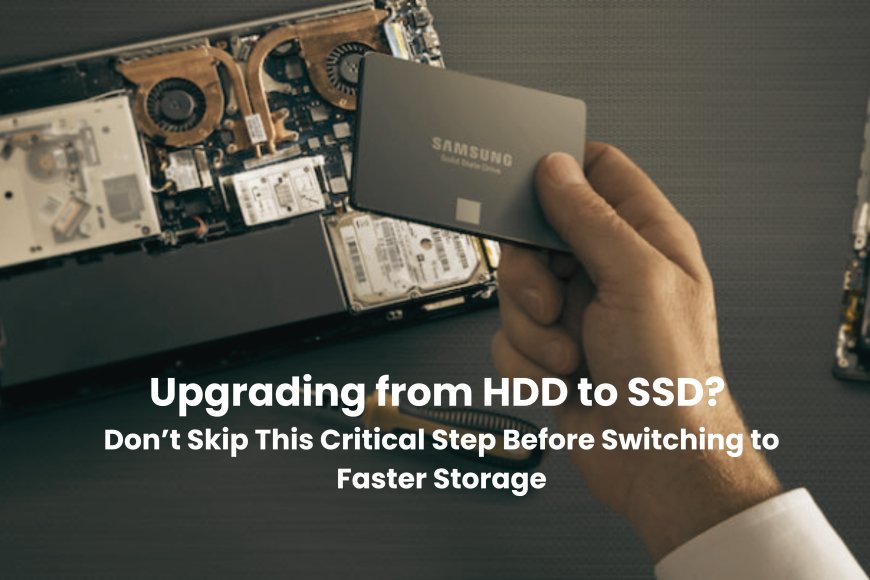Upgrading from HDD to SSD? Don’t Skip This Critical Step Before Switching to Faster Storage
Upgrading from HDD to SSD boosts performance, but skipping data backup can lead to permanent loss. This article highlights the importance of backing up data—especially to the cloud—before installation or cloning to ensure safe, smooth transitions.

One of the most effective methods for enhancing the performance of a computer is to upgrade from a traditional Hard Disk Drive (HDD) to a Solid State Drive (SSD).SSDs have become the preferable choice for both personal and professional users due to their increased reliability, faster data access, and faster boot times.
However, an essential step often gets overlooked in the course of the advantages of upgrading is backing up your data prior to switching hardware.
This article underscores the significance of a comprehensive data backup, particularly when utilizing cloud-based solutions, prior to conducting an upgrade from an HDD to an SSD.
The Risk of Data Loss during SSD Upgrade
When you upgrade from an HDD to an SSD, you usually choose one of two options— installing a fresh copy of the operating system on the new SSD or cloning your existing HDD (copying everything as it is to the SSD).
Both options can lead to data loss if something goes wrong. For example, you might accidentally format the wrong drive, the cloning process might fail, or the new drive might not work well with your system.
Even if you follow online tutorials, these upgrades don’t always go smoothly.Many people end up losing important files like documents, photos or personal data — all because they didn’t back up their data before starting.
Why Cloud Backup Should Be Your First Step
Before attempting any hardware changes, the safest and most reliable practice is to back up your entire HDD, and cloud backup provides a practical, secure, and user-friendly solution.
Cloud backup means putting a copy of your files on secure servers in the cloud.This makes sure that your data stays safe and easily accessible even if your hard drive fails during the upgrade or your device stops working.
Cloud backup has multiple benefits that make it a reliable data protection option. It protects your files from hardware failure and lets you access them from any device, anywhere. Unlike actual storage devices, backup drives can't be lost or damaged. Cloud storage offers secure, encrypted storage and automatic backups to keep your data updated without manual work.
A Better Way to Prepare for SSD Upgrade
To avoid potential issues, it is recommended to follow a simple preparation checklist before switching:
- Back up all important files and folders to the cloud
- Verify that the backup is complete and accessible
- Ensure login credentials for cloud services are noted
- Optionally create a local backup on an external hard drive
- Proceed with cloning or installation only after confirming the backup.
By taking these precautions, users can confidently upgrade to SSDs without the fear of losing valuable data.
An SSD update can considerably improve system performance and efficiency, although it additionally raises the possibility of data loss if not handled properly. Before making any hardware changes, back up your data, especially to the cloud.
In a digital world where data is irreplaceable, cloud backup offers a simple, effective safety net that ensures your important files are never more than a few clicks away — even if something goes wrong.







